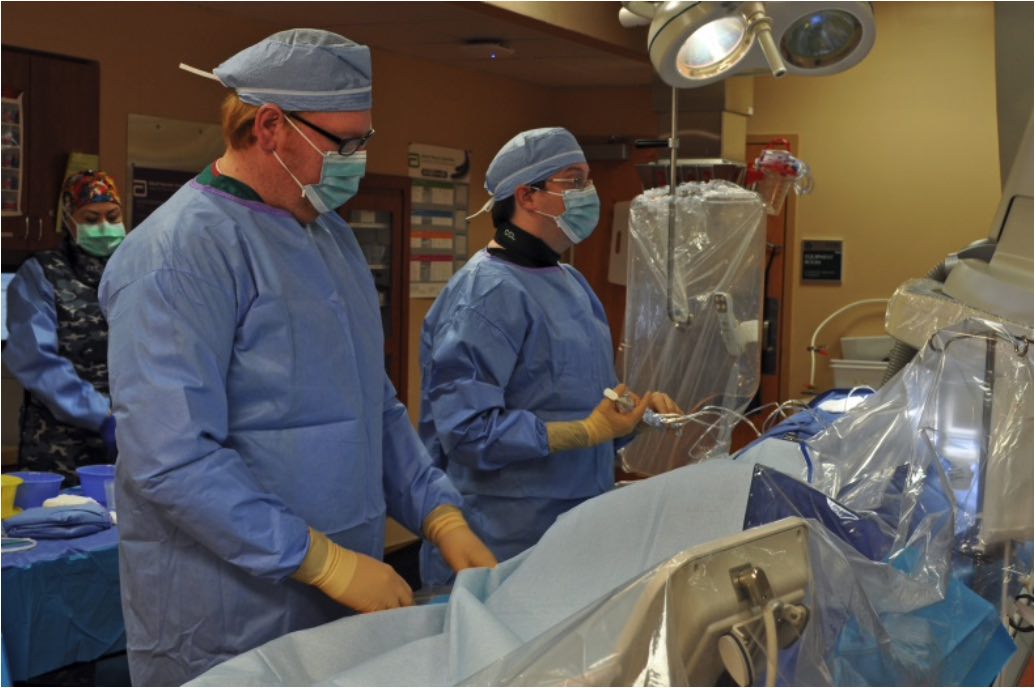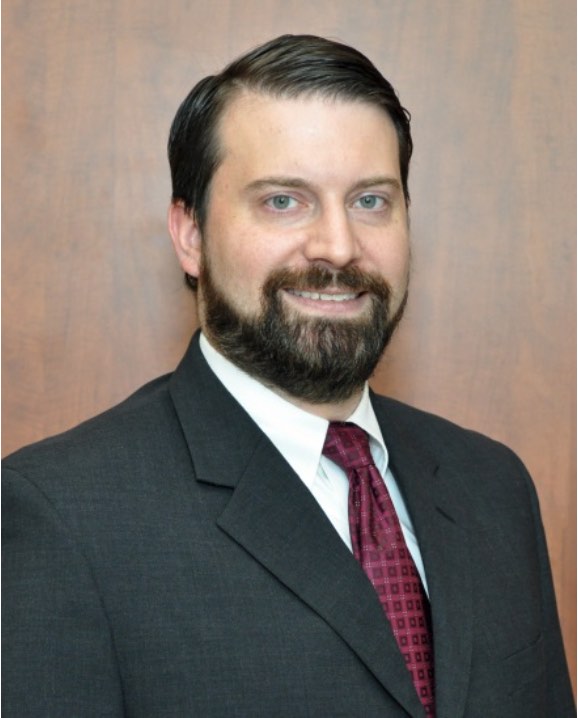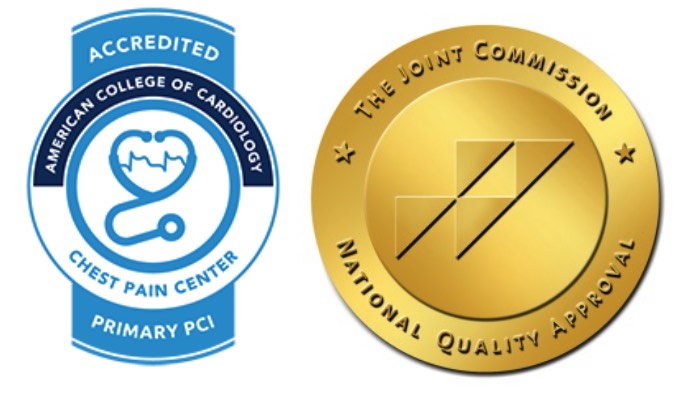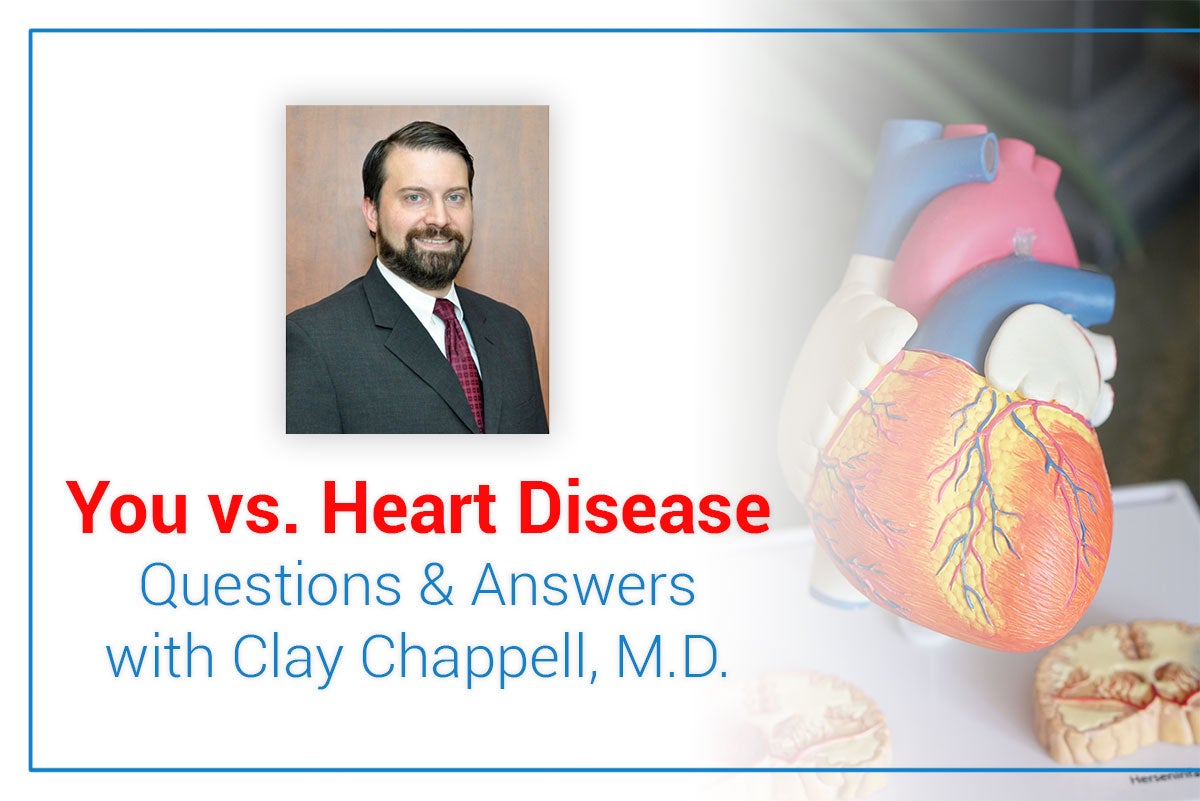Questions and answers with Clay Chappell, M.D., cardiologist at Oconee Heart and Vascular Center
Heart disease is the number one cause of death in America. St. Mary’s wants to help you reduce your risk of heart attack, heart failure and other cardiovascular diseases. Clay Chappell, M.D. shares what everyone needs to know.
What are key symptoms of heart attack, and how do they differ between men and women?
Dr. Chappell: The classic symptom of a heart attack is chest pain, tightness, or pressure. The pain is often associated with shortness of breath, nausea, sweating, and pain in the arms or jaw. Women are more likely than men to have a heart attack without chest pain. Instead, a heart attack in a woman may present with shortness of breath, weakness, or fatigue. For this reason, women are less likely to seek care quickly and their heart attack may be more difficult to diagnose.
What are key steps people should take to promote heart health?
Dr. Chappell:
- If you smoke, stop. Smoking increases your risk of heart disease and negatively affects many other organs in your body. Quit smoking today >
- Exercise regularly. The American Heart Association recommends at least 150 minutes (around 20-30 minutes a day) of aerobic exercise per week.
- Eat a heart-healthy diet and control your portion sizes.
- Know your family history.
- Visit a physician for regular checkups, which should include evaluation of your risk factors for heart disease.
Is there a relationship between obesity, diabetes and heart attack?
Dr. Chappell: Being overweight increases a person’s risk of developing high blood pressure and diabetes, which are both risk factors for heart disease. High blood pressure damages artery walls, making them vulnerable to plaque build-up. The high blood sugar levels of diabetes accelerate the buildup of plaque in the arteries. Plaque build-up can eventually cause a heart attack if not recognized and treated. Exercise combined with eating a healthful diet all year long is one of the best ways to prevent cardiovascular disease.
Why is prevention better than treatment?
Dr. Chappell: It is much more effective to prevent heart disease from developing than to reverse its effects. For the individual, modifying risk factors to prevent the development of heart disease can decrease medical costs and help keep you healthier in the long term. For society, prevention of heart disease reduces the cost of delivering health care by decreasing the need for advanced treatments and hospitalization.
 What is the gold standard for heart attack treatment?
What is the gold standard for heart attack treatment?
Dr. Chappell: Emergent cardiac catheterization and primary percutaneous coronary intervention, or PCI. When heart attack patients come to us by ambulance, advance EKG transmission from the ambulance enables us to rush the patient to our Cardiac Cath Lab, where we work to identify the blocked artery and open it with angioplasty and stenting to restore blood flow as soon as possible.
Why does speed matter?
Dr. Chappell: Time is muscle. The longer a portion of the heart is without nourishing blood flow, the more likely it is that the affected portion of the heart will be permanently damaged. If a large portion of the heart is damaged, the overall strength of the heart is decreased, which can eventually lead to heart failure.
What is heart failure?
Dr. Chappell: Heart failure is a condition in which the heart is weakened and cannot pump enough blood to meet the demands of the body. Common heart failure symptoms are shortness of breath and swelling in the legs or abdomen due to fluid buildup in those areas. A heart attack can cause heart failure by weakening the heart, but there are other causes, too, including an abnormal heart valve or high blood pressure.
What is sudden cardiac death?
Dr. Chappell: Sudden cardiac death is an unexpected death from a cardiac condition within one hour of the start of symptoms. Typically, it is caused by an abnormal heart rhythm that does not allow the heart to pump blood effectively. The most common cause of sudden cardiac death is a heart attack. If you are with a person experiencing cardiac arrest, calling 911, performing CPR, and, if available, defibrillation (shock) with an AED may save his or her life.
Can it be prevented or treated?
Dr. Chappell: Yes. The best prevention is to be screened for coronary artery disease and other cardiac conditions that may predispose you to sudden cardiac death. Selected patients who are at high risk may need electrophysiology testing, which evaluates and treats the tissue that triggers abnormal heart rhythms, and/or have an implantable cardioverter-defibrillator inserted. This small device sits just below the skin of a person’s chest and monitors the heart’s rhythm. If the heart develops an unstable rhythm, the patient will be shocked back into a normal rhythm.
Is it safe to seek medical care for cardiovascular disease during the COVID-19 Pandemic?
Dr. Chappell: Heart disease is still the #1 cause of death in America, even during the current pandemic. Our hospitals and offices are taking extreme precautions to ensure that COVID-19 is not spread among our patients and staff. When it comes to conditions like heart attack and stroke, every second that you delay seeking medical care increases the chance that you will have a bad outcome. For patients with known cardiovascular disease and many other conditions, our physicians are offering virtual visits for patients that are uncomfortable seeing their doctor in person.
Besides wearing a mask and social distancing, you can further protect yourself by getting one of the available COVID-19 vaccines. The COVID-19 vaccine is recommended for most adults, especially those with cardiovascular disease and those at high risk for developing cardiovascular disease. Contact your physician if you are unsure if you should receive the vaccine.
St. Mary’s is your heart health partner
- Certified by the American College of Cardiology as a Chest Pain Center with primary PCI.
- Can perform angioplasty and stent procedures, conduct electrophysiology studies for heart rhythm disorders, implant life-saving cardiac defibrillators and pacemakers, and repair holes between chambers of the heart.
- Provides all three phases of Cardiac Rehabilitation.
- Includes Oconee Heart & Vascular Center with offices in Athens, near Watkinsville, Monroe, Greensboro and Lavonia.
- Offers our region's first cardio-oncology program to help protect people undergoing treatment for cancer against heart damage.
- Is certified by The Joint Commission in heart failure care.

Clay Chappell, M.D., F.A.C.C., is a cardiologist with Oconee Heart and Vascular Center and Director of the Cardiac Catheterization Lab at St. Mary’s.





